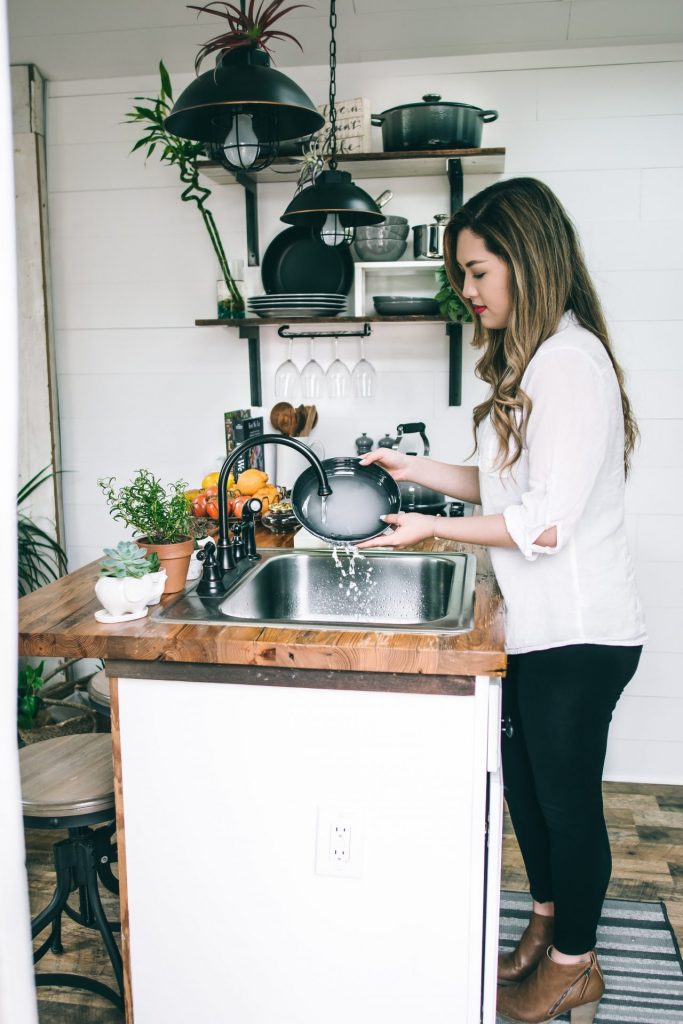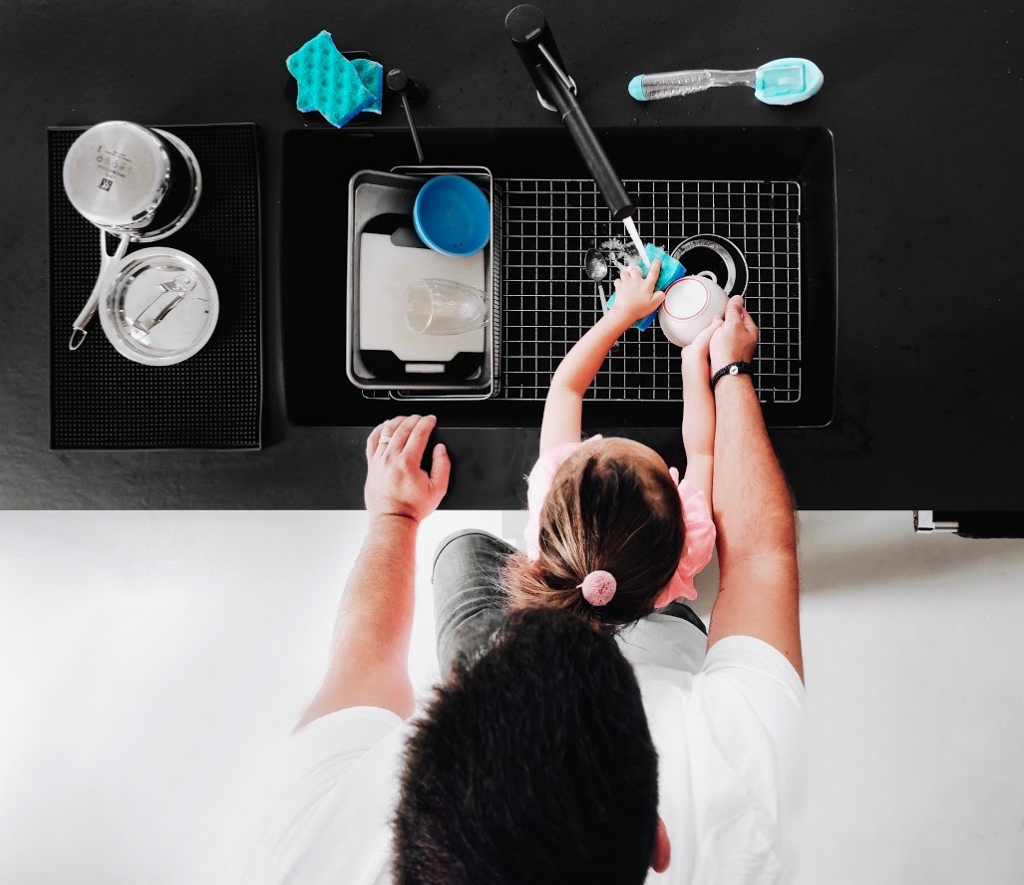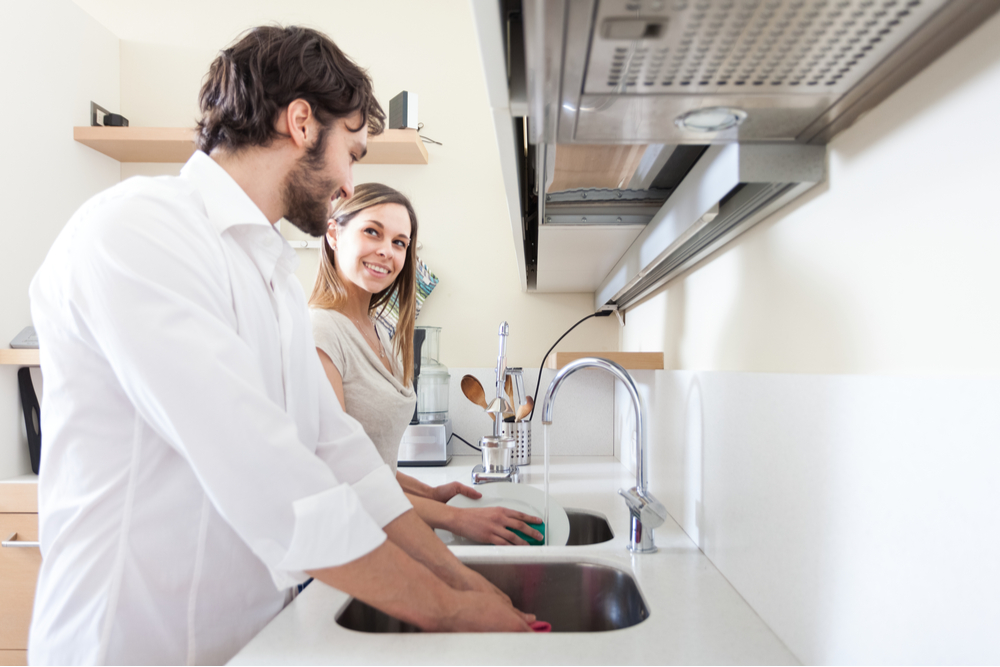
We’ve all been there — moving in with a new roommate (or even more troubling, a partner) and discovering that their idea of a clean sink is a very different reality to yours.
Doing the dishes may seem like a small thing, but we all know it feels like a bigger deal. But why does the amount of time spent washing the dishes matter so much? Why can it drive us mad or change our mood?
Vileda Canada, a national leader in household cleaning goods, wanted to understand what’s really going on beneath the scrubbing we do every day. So, they asked an expert psychologist about our different cleaning personalities and surveyed Daily Hive readers about their cleaning habits.
The science behind dirty dishes

Washing dishes/Unsplash
“Most of us are spread too thin, and dishes end up being another thing on our long to-do list,” explained Nicole McCance, a registered psychologist. “If you feel that the person living with you is adding to your chore list, this can lead to resentment. It can feel unfair, that their potential lack of care causes you more work.”
She continued, “It can be especially frustrating if dish washing comes easy to you and you may have difficulty understanding why they just can’t do something that seems so simple.”
According to the Daily Hive survey, 40% of Canadians say they fight over the dishes all the time.
If you’re tired of fighting, take a look at your housemate’s dishwashing habits to figure out which personality trait rules them. Then, follow McCance’s tips on how to deal with each other’s traits to avoid conflict (and not jeopardize your relationship).
Conscientious and agreeable cleaners

Doing the dishes/Vileda
If you find you’re usually the first one to step up to the sink (and don’t understand those who aren’t), it’s likely that you’re high in conscientiousness — one of the Big Five Personality Traits. It will be easier for you to live with people with similar approaches to keeping their kitchen clean, whereas dealing with the habits of an extrovert could strain your relationship.
McClance recommends, “To save your fingertips from dishwashing frustration, create a weekly schedule and a routine for everyone to pitch in. Clear and agreed-upon rules for everyone!”
Are you generally happy to pitch in when it comes to the dishes? Chances are you’re high in agreeableness. McCance suggests calling a friend or relative while you wash up. You’ll find yourself having a nice 15-minute chat with someone every day and turn a dull chore into something enjoyable.
If one of your roommates is always willing to compromise their interests and donate their time, try not to take advantage of this type of person and make sure to show your appreciation. McCance says, “Take the lead and offer to help or take on other household chores they don’t enjoy.”
Scrubbing up with extroverts

Dishes/Shutterstock
Speaking of extroverts, these kinds of people enjoy interacting with others and are often perceived as full of energy. As such, they might find more success by doing the dishes together. Designate one person to wash, another to dry, and talk about your day as you clean up.
Extroverts are quite similar to people who are open to new experiences. These individuals are intellectually curious, receptive to beauty, and willing to try new things. If this describes you, consider introducing things to your kitchen with new colours or to stimulate your senses.
Does this sound more like your roommate? McCance recommends surprising this person with new products and techniques to make the cleaning tasks easier and more enjoyable.
Neurotics with neat habits

Dishes/Shutterstock
Do you hate coming home to a full sink? Low tolerance for stress? Chances are your dishwashing personality has neurotic tendencies.
If you’re the neurotic one, doing the dishes can likely calm you down. “Be mindful and concentrate on the sensory experience of washing up. Take this moment as a routine to breathe and think positively,” suggests McCance.
Through their survey, Vileda found that 27% of Canadians find washing the dishes to be therapeutic.
Household chores can also become easier when all the senses are ignited, and when creative actions are taken — try meditation, listening to music, or calling a loved one.
If you’re looking for a way to make washing up easier, consider getting some products that are high quality and durable. Vileda’s Scrunge sponge might just be your new best friend in the sink. The sponge’s rippled surface removes dirt and grime easily and its non-scratch surface is perfect for all your non-stick surfaces. It’s tough, so it doesn’t wear away easily (hooray for no more disintegrating sponges) and is dishwasher safe.
To learn more about the psychology behind doing the dishes and find out more about Vileda’s magical sponge, head to their website today.


